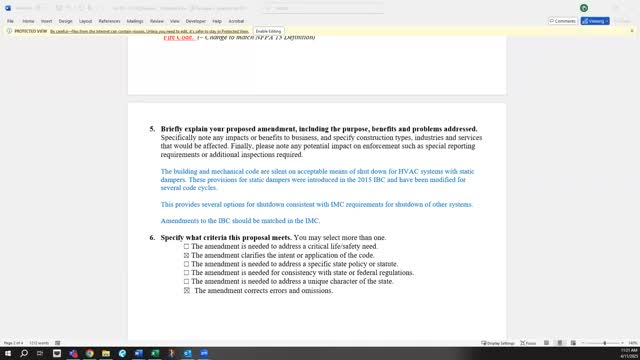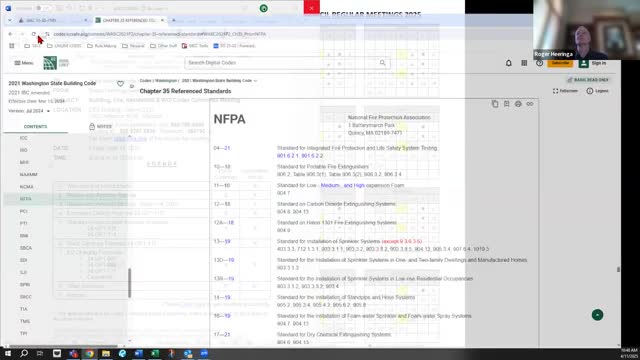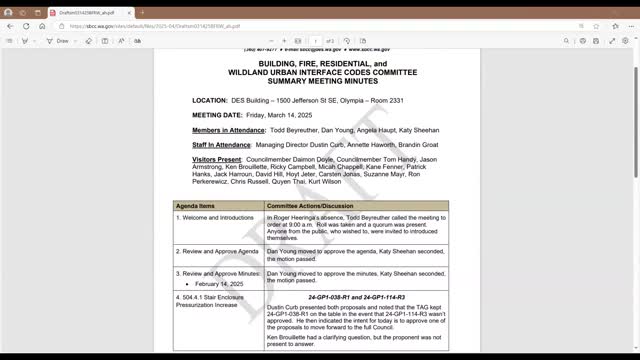Article not found
This article is no longer available. But don't worry—we've gathered other articles that discuss the same topic.

BFRW committee to draft consolidated EV‑charging amendment; members push for data‑driven thresholds and flexibility on electrical sizing

Committee consolidates stair pressurization proposals, advances revised damper language; tables HVAC‑shutdown clarifications for further work

